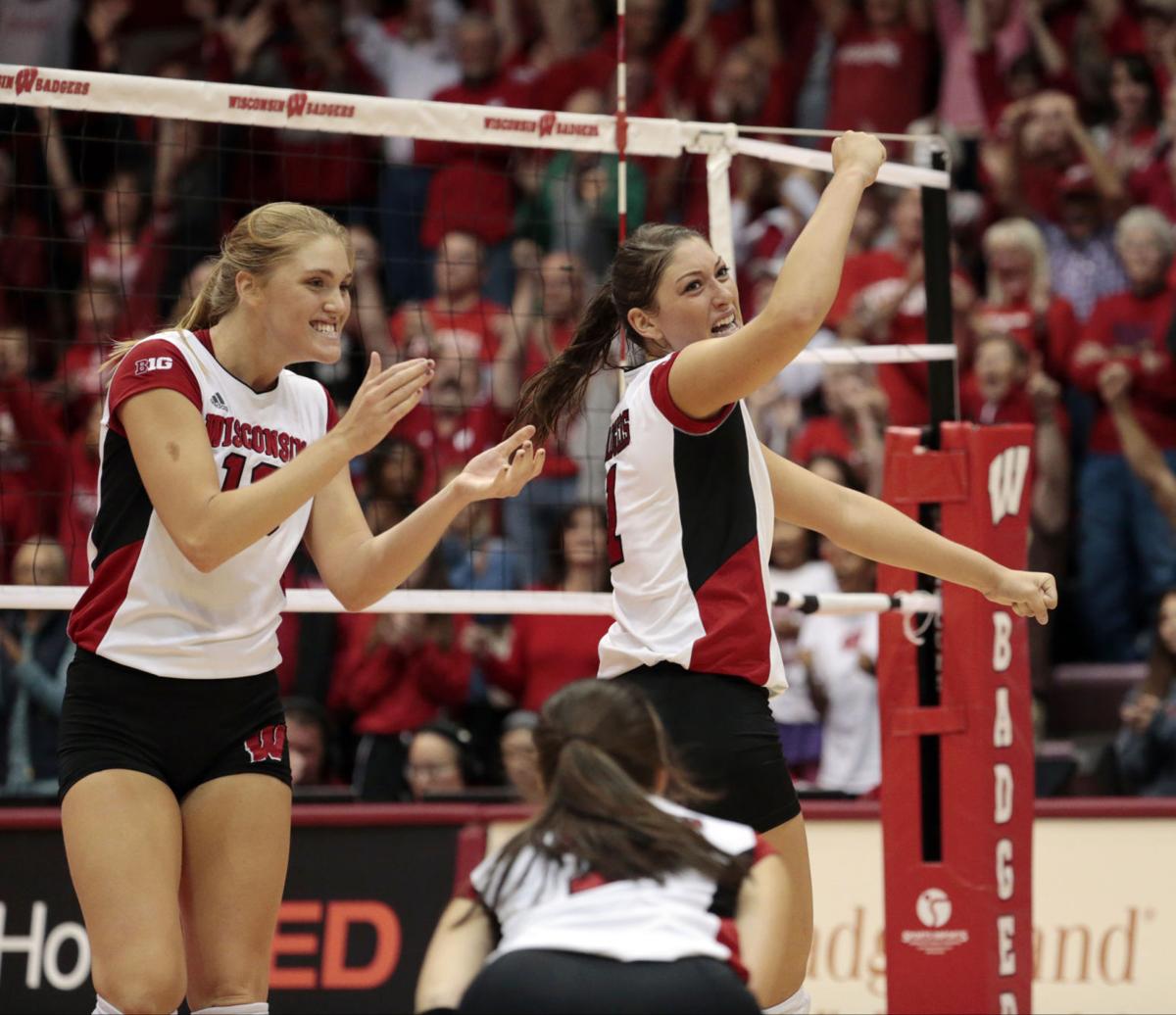By Dennis Punzel
November 30, 2017

Haleigh Nelson and Lauren Carlini (M.P. King/State Journal)
WWLD?
WWND?
Translation: What would Lauren do? What would Nelly do?
The questions arose a couple weeks ago as University of Wisconsin volleyball coach Kelly Sheffield and his freshman setter Sydney Hilley were watching a video of former UW quarterback Russell Wilson, who was miked up as he talked with his Seattle Seahawks teammates.
Hilley pondered what it would be like if she could’ve listened in like that to her predecessor at setter, Lauren Carlini, or former middle blocker Haleigh Nelson as they talked to their teammates. How did those two celebrated leaders inspire their teammates? What did they say in pressure situations? How did they say it?
Only way to find out is to ask. So the next day they called Carlini in Scandicci, Italy, where she is playing her first season of professional volleyball and the two setters discussed their craft for more than an hour on FaceTime.
The next day Hilley called Nelson in Baton Rouge, Louisiana, where she is attending grad school and playing beach volleyball for LSU.
“Every minute of it Syd was soaking up knowledge,” said Sheffield, whose main job was to hold the phone during the Carlini conversation. “Learning takes place when there’s a need to know, and Syd needs to know. That’s why she’s the player she is right now. And even more exciting, why she’s going to continue to get better.
“She wants to max out and you’ve got to be willing to put yourself out there if you’re wanting to be great at something. That requires searching out information, searching out people that have been where you want to go.”
Sheffield said that Hilley has been able to put the advice she got to immediate use and teammates have noted a difference in her communication during recent matches. That progression could play a role as the Badgers (20-9) begin NCAA tournament play Friday against in-state rival Marquette (22-9) in Ames, Iowa.
Hilley said she had different goals in each conversation, although communication was a common theme in each.
Click on the link below to read the rest of the article: